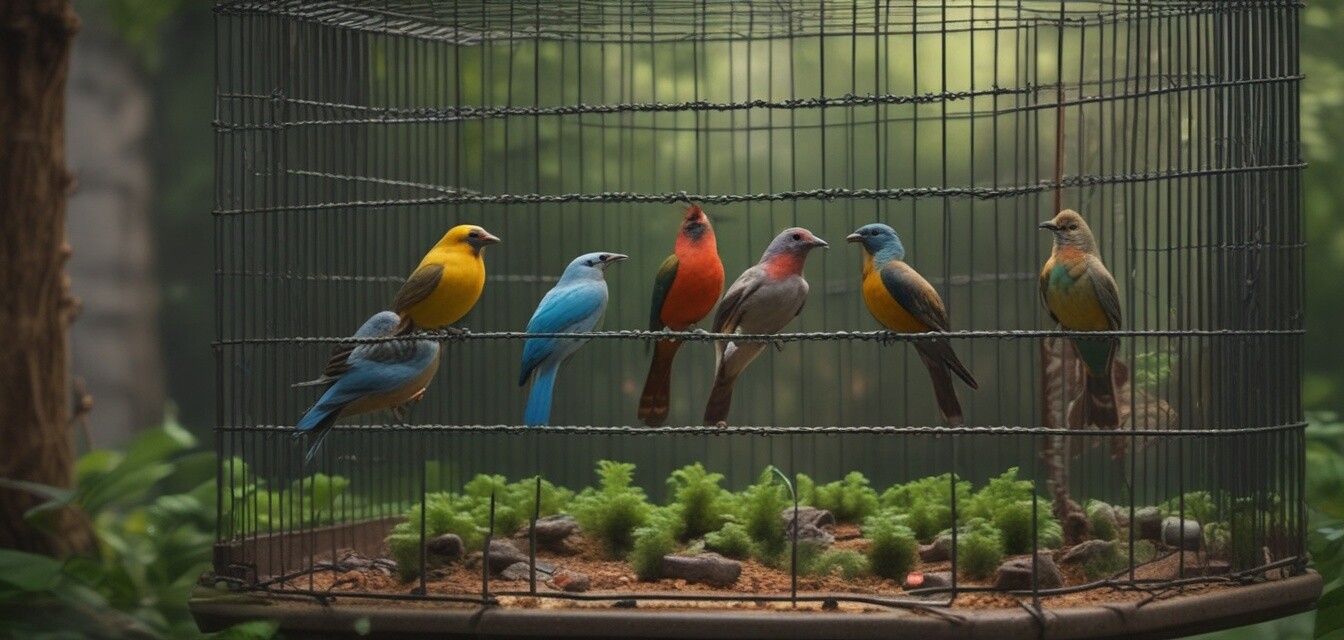
Seasonal Allergies in Birds: What You Need to Know
Key Takeaways
- Seasonal allergies can affect birds, similar to humans.
- Common allergens include pollen, dust, and mold.
- Maintaining habitat hygiene is crucial for managing symptoms.
- Consult with a veterinarian for any serious health concerns.
- Understand the signs and symptoms of allergies in your cage birds.
Understanding seasonal allergies in cage birds is essential for their overall well-being and happiness. Just like many of us, our feathered friends can experience allergic reactions to various environmental factors, especially during specific times of the year. By identifying the allergens and implementing proper care techniques, you can create a healthier environment for your birds. In this article, we'll explore common allergens, their symptoms, and how to manage them effectively.
What Causes Seasonal Allergies in Birds?
Seasonal allergies in birds are typically triggered by several environmental factors that vary depending on the season. The most common allergens include:
- Pollen from trees, grass, and weeds
- Dust mites
- Mold spores
- Smoke and environmental toxins
Understanding what might trigger your bird's allergies is the first step in providing effective care. Below is a brief overview of the main allergens that may affect your bird during different seasons.
| Allergen | Season | Source |
|---|---|---|
| Pollen | Spring | Trees, grasses, and flowers |
| Dust Mites | All year round | Household dust |
| Mold Spores | Summer and Fall | Damp areas, compost, and soil |
| Environmental Toxins | All year round | Smoke, cleaning products |
Recognizing Symptoms of Allergies in Birds
Being vigilant is key to identifying allergies in your birds. Some typical symptoms include:
- Sneezing or coughing
- Watery eyes
- Nasal discharge
- Scratching or feather plucking
- Change in appetite or behavior
Understanding these symptoms can help you act quickly to address any potential health issues in your birds. If you notice any of these signs, consult a veterinarian for further guidance.
How to Manage Seasonal Allergies
Effective management of your bird's allergies involves several key practices:
1. Maintain Habitat Hygiene
Keeping the living environment clean can significantly reduce allergy triggers. Here’s how:
- Regularly clean the cage and remove droppings.
- Change bedding frequently to reduce dust.
- Avoid using harsh cleaning products.
- Limit exposure to second-hand smoke or strong fragrances.
2. Monitor Air Quality
Indoor air quality plays a crucial role in your bird's health. Here are some suggestions:
- Use air purifiers with HEPA filters to minimize airborne allergens.
- Ensure proper ventilation in the room.
- Avoid areas with excessive pollen or mold if possible.
3. Consult a Veterinarian
For persistent allergy symptoms, it's essential to seek professional advice. A veterinarian can recommend treatments, including:
- Allergy medications
- Antihistamines
- Specialized diets
Addressing any underlying health issues with your veterinarian is crucial for your bird's long-term well-being.
Creating a Healthy Environment for Your Birds
To further ensure your feathered companions remain healthy, consider the following steps:
- Provide a balanced diet with fresh fruits and vegetables.
- Incorporate safe, natural cleaning products for the cage.
- Regularly check for mold and other allergens in your home.
Conclusion
Seasonal allergies can be a challenging issue for birds and their owners. By understanding the potential allergens, recognizing symptoms, and implementing proactive care measures, you can significantly improve your bird's quality of life. Remember to maintain a clean environment and consult a veterinarian if allergy symptoms persist.
Pros
- Understanding seasonal allergies allows for better bird care.
- Maintaining cleanliness can prevent potential health issues.
- Consulting with a veterinarian ensures appropriate care.
Cons
- Allergies can be challenging to manage without proper knowledge.
- Some allergens may be difficult to eliminate completely.
For more information on proper bird care, check out our articles on Cage Bird Health and Care, or learn about different Bird Food & Supplements for your birds.